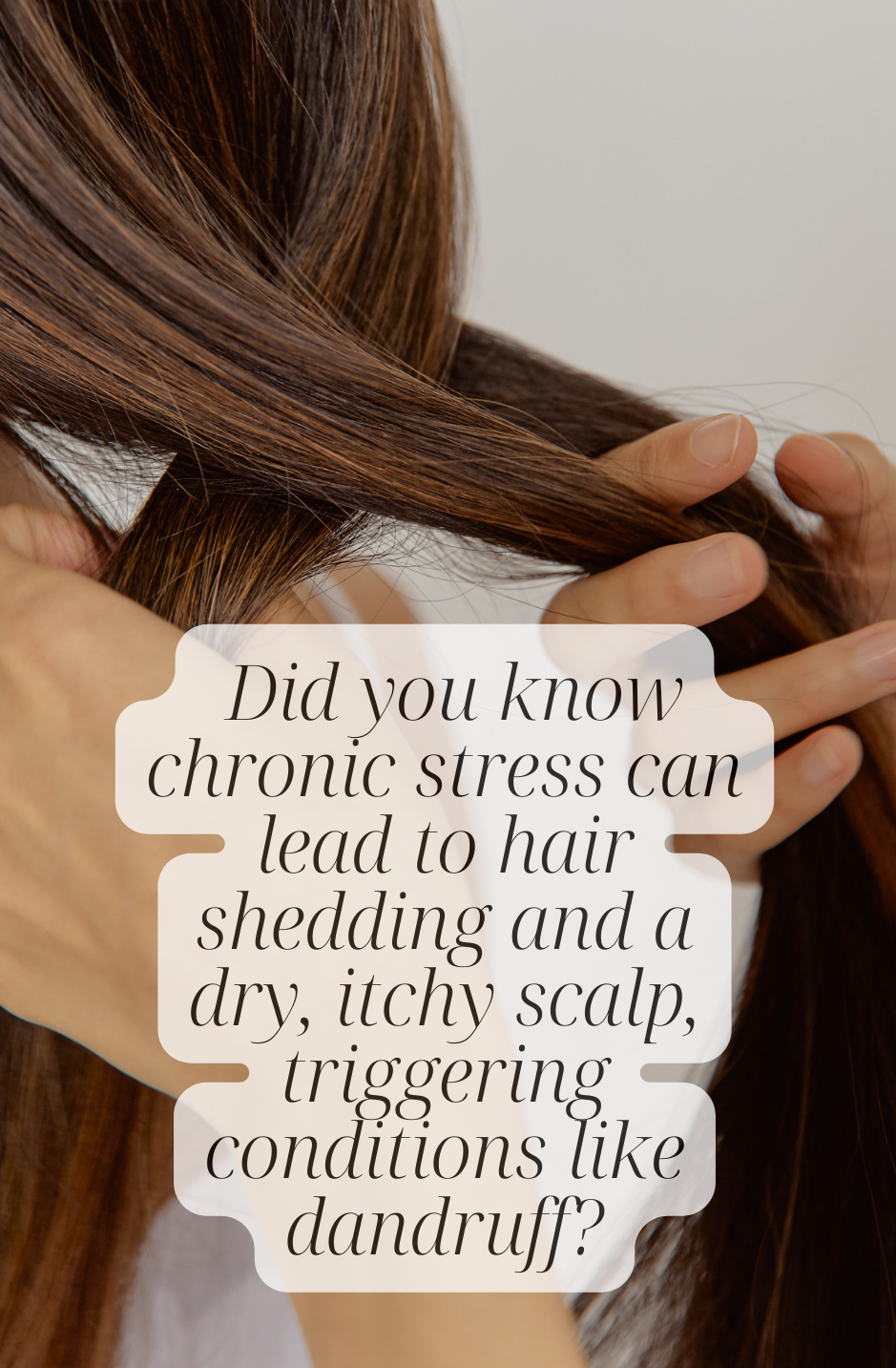
24 Apr Stressed tresses: How stress affects your hair
In today’s fast-paced lifestyle, stress is a constant companion for many of us. Its impact extends beyond our mental and emotional well-being, directly affecting our physical health, including the condition of our hair.
Breaking point for hair and scalp
Stress can wreak havoc on your hair several ways.
Hair shedding is one of the main effects of stress on your hair. It’s important to note that stress doesn’t usually cause hair loss and thinning immediately. Most hair loss happens between 6-12 weeks after a stressful event due to the nature of the hair growth cycle.
High stress levels can push hair follicles into a resting phase of their growth cycle, preventing new hair from growing. Normally hair spends around 85% of its life in the growth phase, but acute stress causes the hair to prematurely enter the resting phase and can trigger noticeable hair loss and thinning.
Thinning hair often impacts badly on our self-image, and therefore our self-confidence and self-esteem. It’s yet another blow if you’re already feeling low and stressed. The good news is that hair loss due to stress is not permanent, and your hair will grow back once you have removed the stress.
As well as hair shedding, chronic stress can lead to a dry, itchy scalp, exacerbating conditions like dandruff.
The increased production of stress hormones can also affect the nutrient balance in your body, depriving your hair of the essential nutrients it needs to stay healthy and strong. As a result, hair is more prone to breakage and damage.
Gentle cleansing and conditioning
Choose mild, sulphate-free shampoos and nourishing conditioners that don’t strip your hair of its natural oils says. Maintaining a healthy scalp environment is key to preventing stress-induced hair issues.
Nutrient-rich hair treatments
Incorporate hair masks or serums enriched with vitamins and minerals into your routine. Aim for weekly treatments to replenish nutrients and moisture, vital for stress-damaged hair.
Scalp care
A regular scalp massage not only feels incredibly relaxing but also stimulates blood flow to the hair follicles, encouraging healthy hair growth.
Ask your Xylem stylist about adding a regular scalp exfoliator into your routine to remove product buildup and skin flakes. And if you’re prone to dandruff an increase in stress can make the scalp produce more oil which may upset its microflora balance. Try Aveda’s Scalp Solutions Exfoliating Scalp Treatment to reduce flaking and relieve itching.
Minimize styling damage
High stress can make your hair more susceptible to damage from heat and styling products. So remember to reduce your use of heat styling tools if possible, turning down the heat dial and always use a heat protectant before styling.
Another way to protect fragile strands is to avoid hairstyles that pull tightly on the hair, such as ponies and sleek, tight buns.
Relaxing head massage
Ask your stylist for an extra-relaxing head massage at the back wash. At home, treat yourself to a firm but gentle massage – it takes just minutes in the morning, but you’ll feel the benefits on your stress levels.
Mindful relaxation
Dedicate time to activities that relax both your mind and body. Yoga and meditation can improve your stress management and positively affect your hair health. Regular exercise can help lower levels of your stress hormones and help take your mind off the cause of your stress.
We understand the profound connection between stress and hair health. Book a consultation with us for personalized advice and treatments tailored to combat the effects of stress on your hair. Embrace self-care as an essential part of your routine, and let us help you reveal your healthiest, most vibrant hair yet.

Sorry, the comment form is closed at this time.